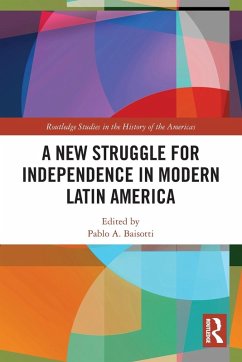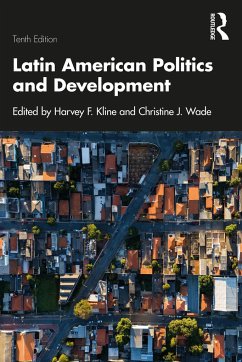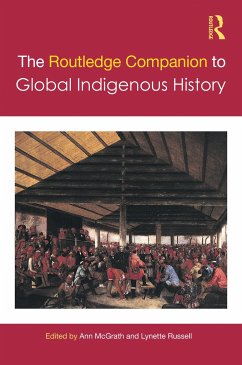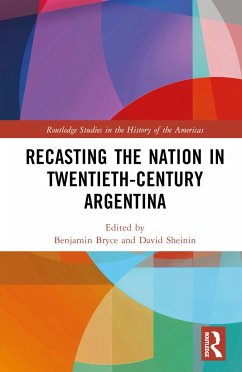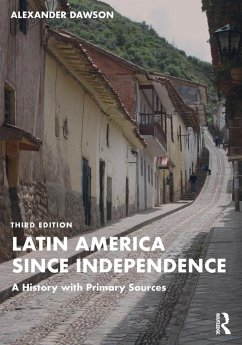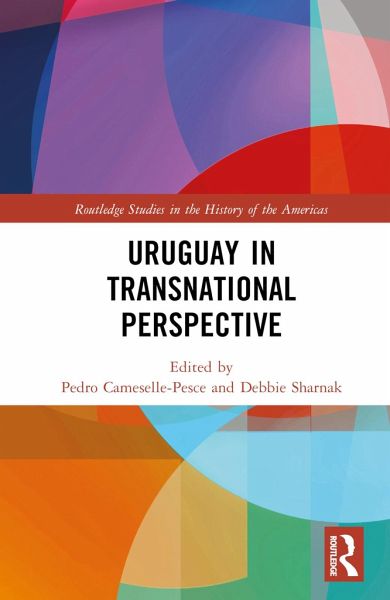
Uruguay in Transnational Perspective
Versandkostenfrei!
Versandfertig in 6-10 Tagen
144,99 €
inkl. MwSt.

PAYBACK Punkte
72 °P sammeln!
Most of the world knows Uruguay only for its soccer team, or its vaunted title as the "Switzerland of South America," an enduring moniker given to the country for its earlier social welfare policies and relative stability. Even many scholarly narratives of Latin America fail to integrate the country into historical accounts, reducing the country to, as one historian has explained, "a periphery within the periphery that is Latin America."This volume challenges that characterization, taking one of the most innovative small states in the region and analyzing its transnational influence on the wor...
Most of the world knows Uruguay only for its soccer team, or its vaunted title as the "Switzerland of South America," an enduring moniker given to the country for its earlier social welfare policies and relative stability. Even many scholarly narratives of Latin America fail to integrate the country into historical accounts, reducing the country to, as one historian has explained, "a periphery within the periphery that is Latin America."
This volume challenges that characterization, taking one of the most innovative small states in the region and analyzing its transnational influence on the world. Uruguay in Transnational Perspective takes a broad look at the country's three-hundred-year history, connecting imperial practices and resistance, Afro-Latin movements, and feminist firebrands, among others to understand how the country and its citizens have influenced and shaped regional and global historical narratives in a way that has thus far been overlooked.
With a true collaboration between scholars of the Global North and Global South, the volume is both transnational in its scholarly focus and its production. Its interdisciplinary nature offers a broad range of perspectives from leading scholars in the field to re-evaluate Uruguay's impact on the global stage.
This volume challenges that characterization, taking one of the most innovative small states in the region and analyzing its transnational influence on the world. Uruguay in Transnational Perspective takes a broad look at the country's three-hundred-year history, connecting imperial practices and resistance, Afro-Latin movements, and feminist firebrands, among others to understand how the country and its citizens have influenced and shaped regional and global historical narratives in a way that has thus far been overlooked.
With a true collaboration between scholars of the Global North and Global South, the volume is both transnational in its scholarly focus and its production. Its interdisciplinary nature offers a broad range of perspectives from leading scholars in the field to re-evaluate Uruguay's impact on the global stage.



